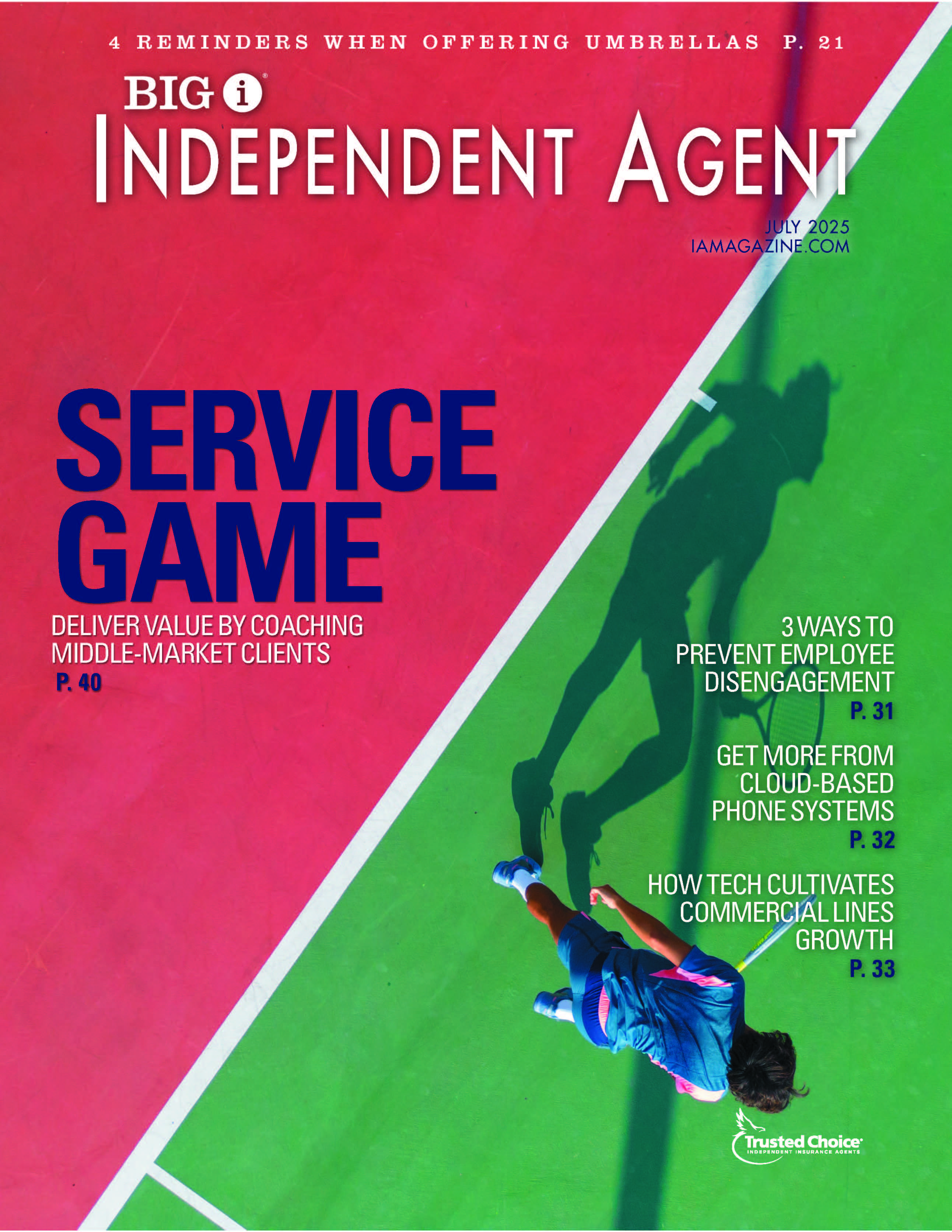Position Young Producers to Succeed
By: Frank Pennachio
Young producer turnover and underperformance continues to plague many, if not most, independent agencies. The direct, indirect and lost-opportunity costs of losing young producers—or hanging on to underperforming ones—are enormous. In today’s challenging economic times, agencies can no longer afford to do the same things and get the same results. It is no longer an option to hire 10 young agents with the hope that two or three will make it. Why is the young producer failure rate so high—and what can agencies do to get better results?
Most agencies do not have a consistent on-boarding and skills validation process, even though they think they do. They test on the front end of the hiring process and usually send young producers to an insurance company’s training program and perhaps a few other training classes. After that, the process tends to become inconsistent or erratic. Some agencies will assign a mentor or someone for the young producer to shadow. With few exceptions, the mentors are already managing their own clients, so the young producer is squeezed into an already harried schedule. In addition, the mentor may have sales skills, but lack sales coaching and management skills. Also, it is unlikely the mentor has designed or implemented a consistent written process or skills validation program.
It should be no surprise, then, when two to three years down the road the young producer has not validated, has cost the agency hundreds of thousands of dollars in direct, indirect and lost-opportunity costs, and is let go. Usually, the blame is placed on the young producer for “not having what it takes.” Yet, how many young producers had what it took, but were lost due to the lack of an effective training process?
Agencies usually validate young producers based on revenue generated without helping the producers develop the skills they need to succeed. Revenue generated is a lagging indicator; it will actually follow if the producer has the right skills.
The first skill is for the young producer to be able to get in front of a prospect with leverage. Without first meetings, there is no need for any other skills. Can the young producer articulate the agency’s value proposition? Can they entice a prospect to meet for a reason beyond bidding insurance? If young producers cannot sell a client on an appointment to meet, they are not going to succeed. Agency management can determine in a few months, not years, whether or not a young producer has the skills to get a first meeting.
The next skill a young producer needs is the ability to engage in a dialog with a prospect. Telling the prospect about the agency and its great service is not a dialog. A dialog enables prospects to self-discover risks and threats to their business that were not previously identified. The decision to change to a new agent occurs during the dialog stage of the sales process, not the presentation stage. If the young producer can not engage in an effective dialog, then he or she is reduced to being just a commodity transaction agent who will win or lose on price. Selling on price is not the business objective of most agencies and is woefully ineffective.
During the dialog, young producers must gain buy-in from the client that the newly-identified risk and threats must be addressed. The client has to have an increased level of dissatisfaction after the meeting, or the client will not change agents. The exception to this is when one agent undercuts on price, but this is not the path to sustainable success.
The young producer must be able to connect the client’s challenges and explain the solutions the agency can offer to help. If the initial conversations were effective, this step is fairly easy. Too frequently producers want to skip to this stage too early in the sales process and end up sabotaging their own efforts. If a producer offers solutions before identifying risks and threats and getting client buy-in, the solutions will confuse or threaten the client. Confused or threatened clients don’t change agents.
If the agency takes the time to validate these sales skills, a young producer’s success will follow—or at the very least, failure will occur much more quickly. Either way, the agency will benefit and stop wasting an untold amount of money. Effectively and efficiently growing successful young producers is what will make the difference in the future viability of your agency.
Frank Pennachio (frank@mywcadvisor.com) is co-founder of The WorkComp Advisory Group, a sales training and consulting organization that works with agencies to leverage technical knowledge and sales strategy into successful new business development.










